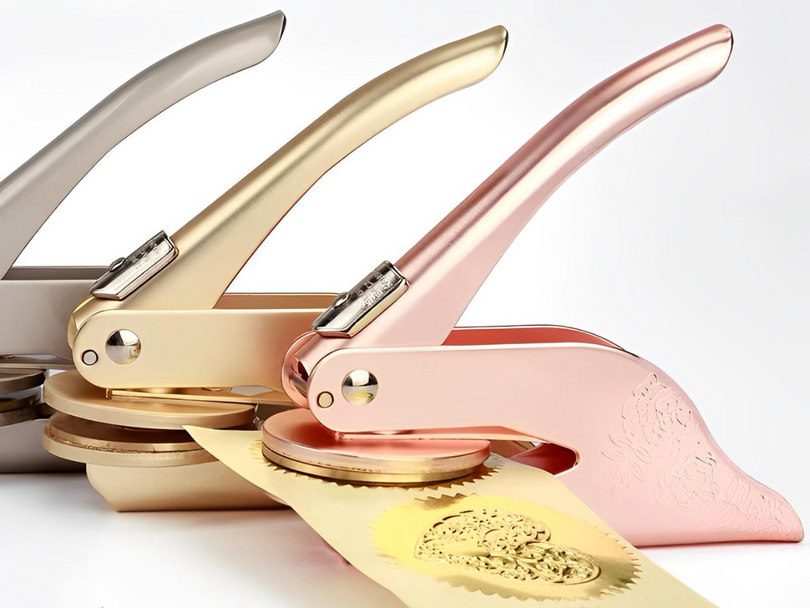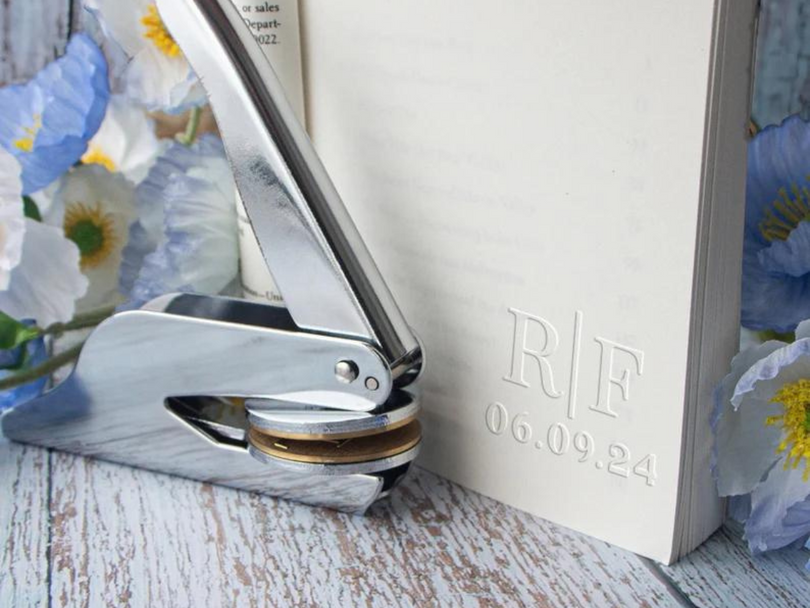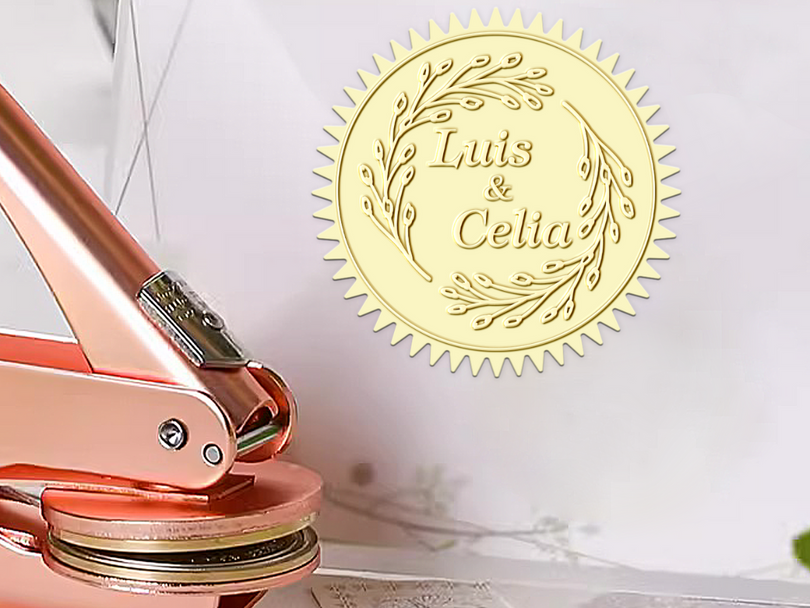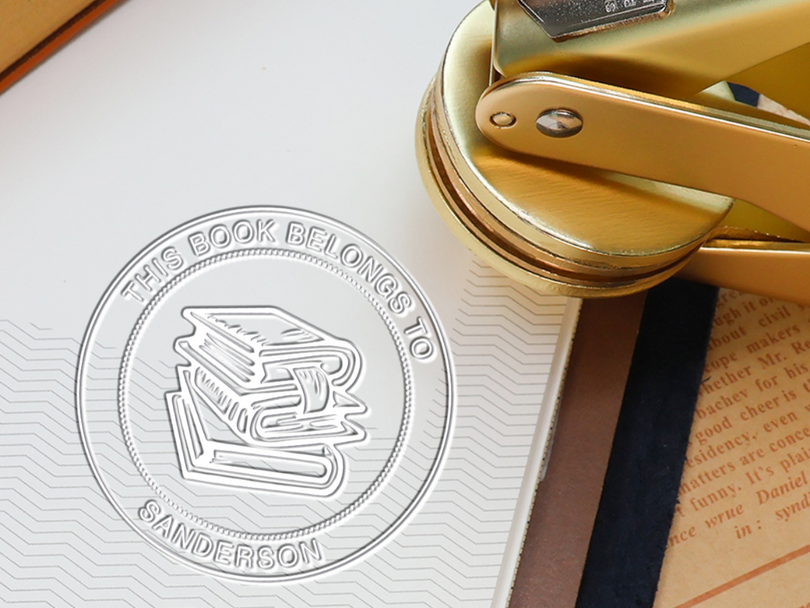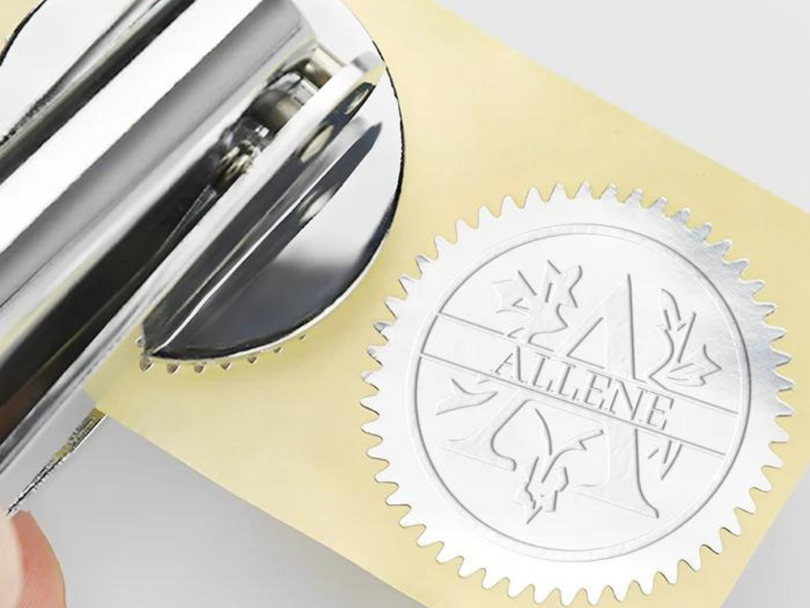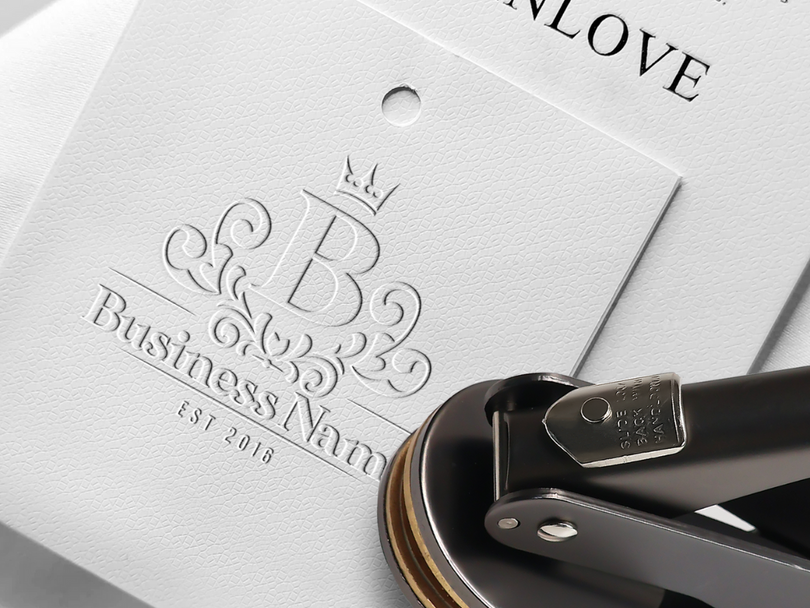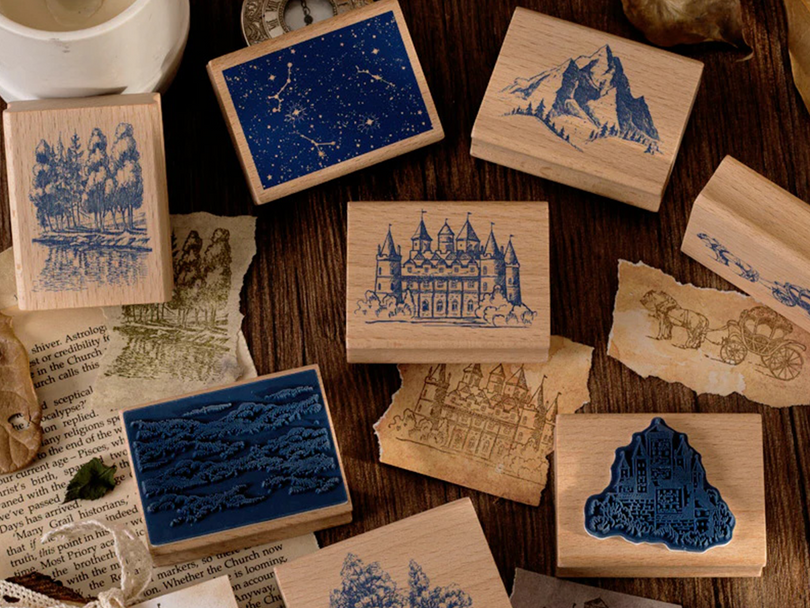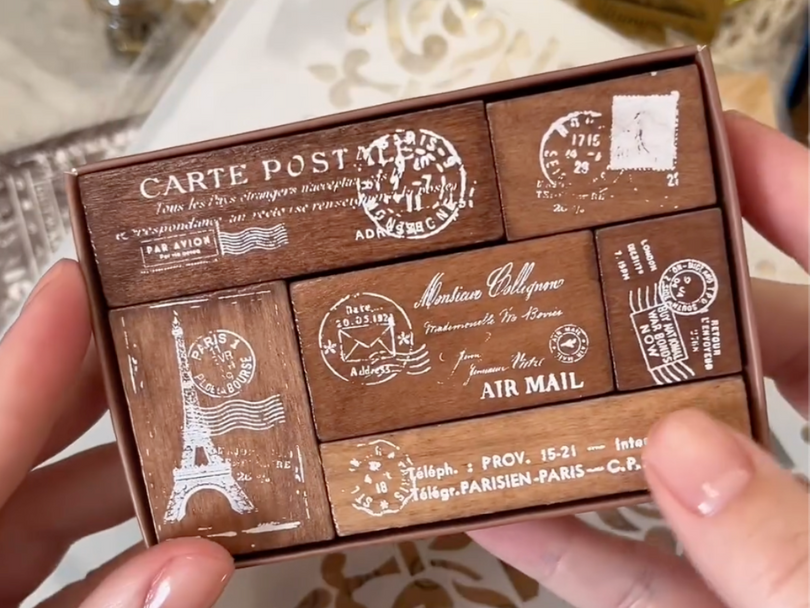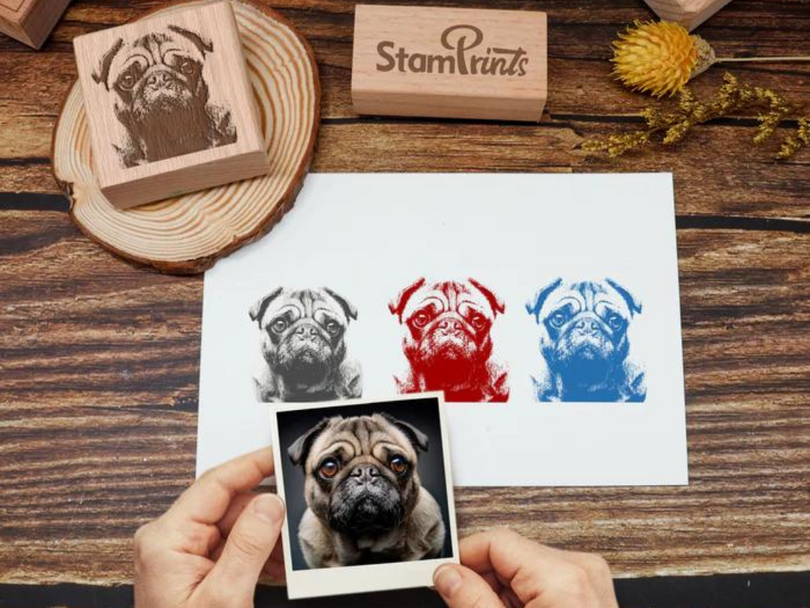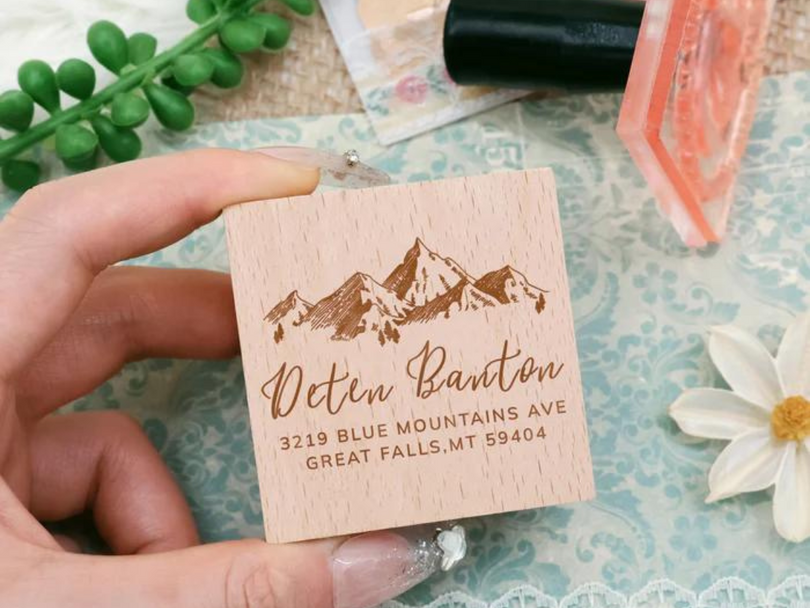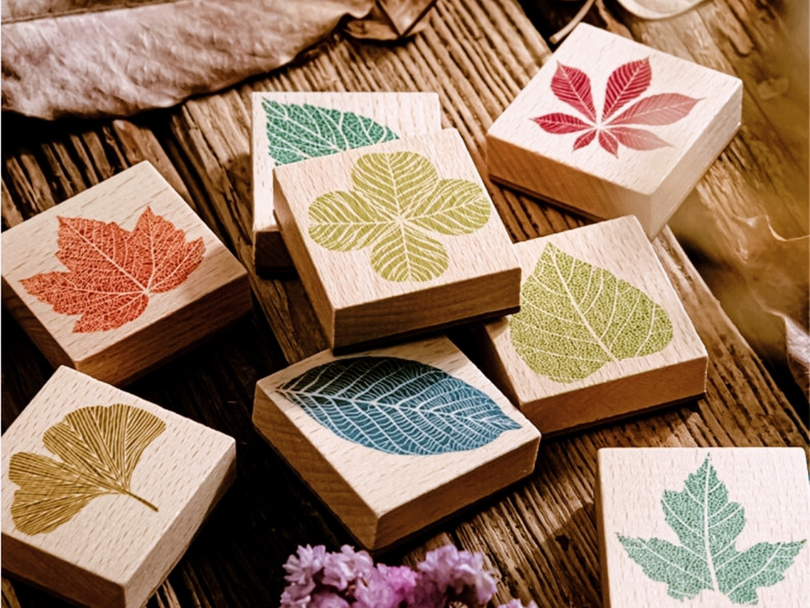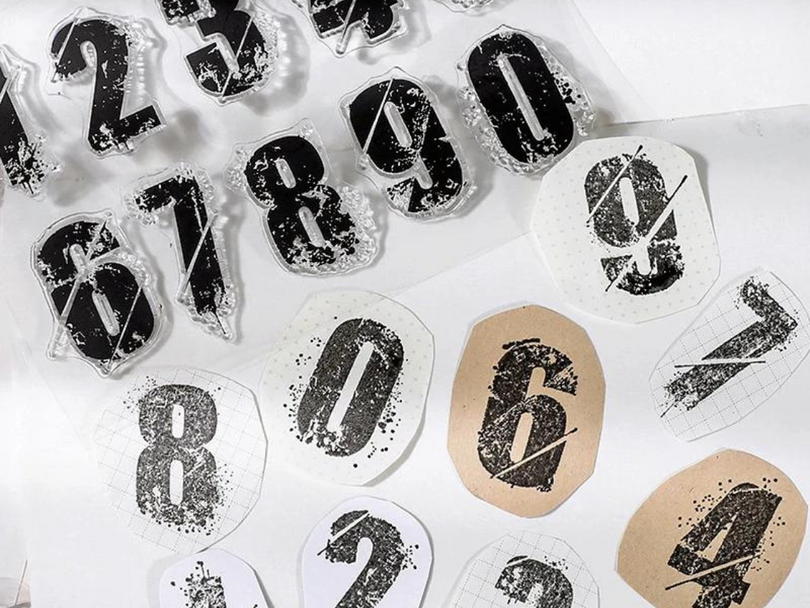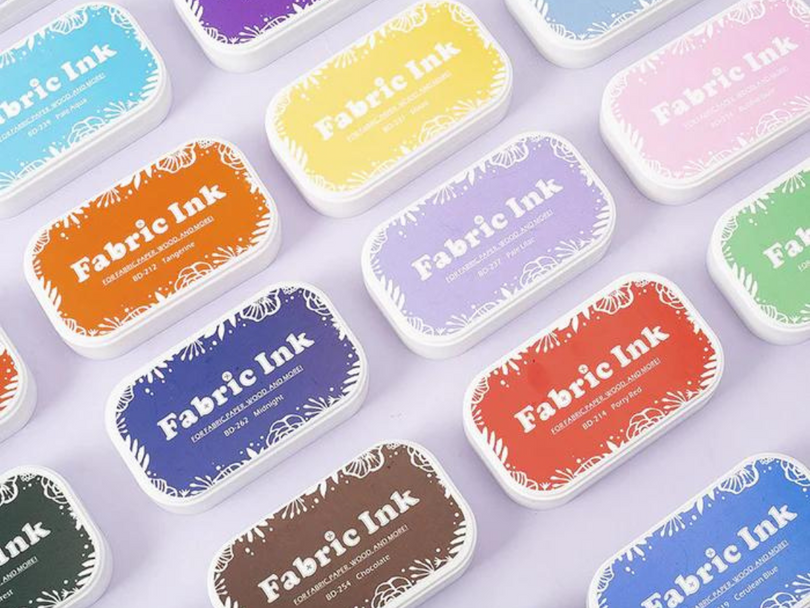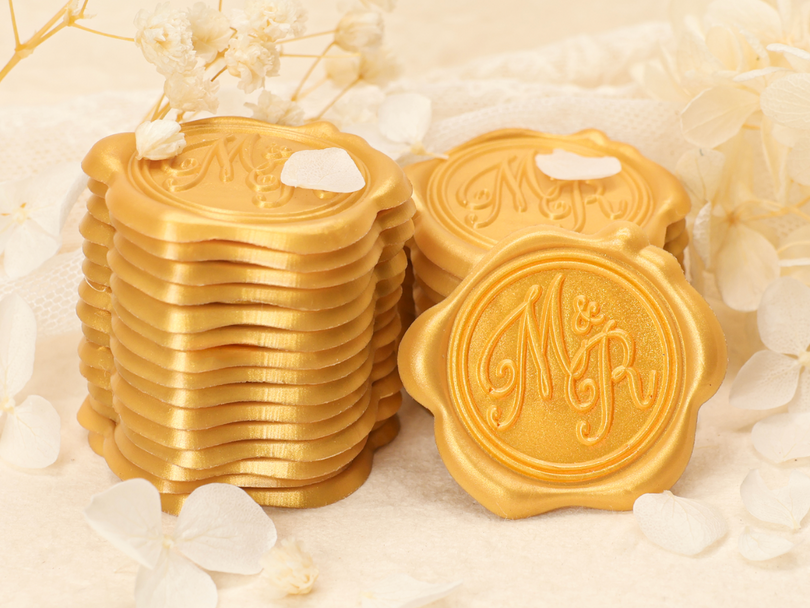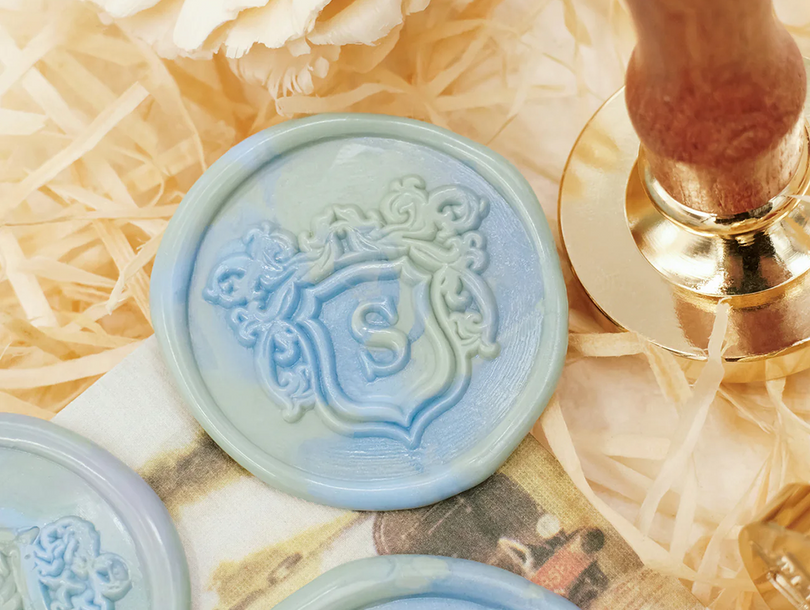Back in the Middle Ages, European nobles loved adding their personal “signature” to books. As printed books became more common and private collections grew, Ex Libris emerged and evolved into a new form of art. Famous artists like Albrecht Dürer and Alphonse Mucha even designed bookplates for avid collectors.
The Book Embosser, as a modern continuation of this tradition, offers a more lasting option and is growing in popularity today. This article will walk you through the basics of a Book Embosser and provide a guide to designing your own pattern, helping every book lover leave a one-of-a-kind mark on their beloved pages.
What Is a Book Embosser?
A Book Embosser is a tool for marking books by creating raised or recessed designs on paper. It’s not only practical but also carries the rich history of book ownership traditions.
Interested in learning more about embossers? Click here to discover more.
Pros and Cons of an Embosser
Common tools for marking books include Ex Libris, ink stamps, and embossers. Ex Libris is typically an artistic label pasted onto the flyleaf. Ink stamps use ink to emboss a vintage-style mark onto the page. Embossers, however, stand out in their own way. Here’s a quick comparison:

| Book Marking Tool | Pros | Cons |
|---|---|---|
| Ex libris | Rich, diverse designs | Can peel off over time |
| Ink stamp | Clear, bold marks | Prone to smudging or ghosts |
| Book embosser | Permanent raised texture | Tool can be heavy |
Each tool has its charm, but the Book Embosser’s permanent, textured effect is especially unique. Beyond marking books, though, what other creative uses can this handy tool offer?
Beyond Books: Creative Ways to Use a Book Embosser
A Book Embosser isn’t just for labeling your collection—it can bring unexpected joy to all sorts of occasions.
● Show Book Ownership
A Book Embosser clearly marks who a book belongs to, preventing loss or mix-ups. It’s perfect for readers with large collections or those who often lend out books.
● A Keepsake for Book Events
At reading clubs, book fairs, or author signings, a Book Embosser can be a fun way to “check in.” It doubles as a memento and adds an interactive twist to the experience.
● A Thoughtful Gift for Friends
Pair a book with a custom Book Embosser (like their name or a quote about the book) as a gift for a literature lover. It’s both practical and heartfelt.
Embosser Design Guide: How to Create Your Perfect Mark
Before you get your hands on an embosser, you might want to think about how to design a pattern that reflects your personality. Here’s a step-by-step guide to help you craft a standout book imprint.
A customizable Book Embosser design follows a simple structure, usually made up of three key elements: a classic text template, a personalized pattern, and your unique signature.
Step 1: Pick a Classic Text Template
The foundation of a book imprint often starts with a traditional text template. These phrases, rooted in centuries of book-collecting culture, elegantly declare ownership. Common options include:
- "From the Library Of"
- "From the Book Shelf of"
- "Ex Libris"
- "This Book Belongs to"
These classic lines usually wrap around the design, setting the stage for your creation.
Step 2: Choose a Personalized Pattern
Beyond the text, the pattern is your chance to shine. Pick something that matches your reading tastes and style.
Here are some ideas to spark your imagination:
-
Traditional Heraldic Style
- Shield:Originating from medieval family crests, it stands for heritage and prestige. Even today, this design can add a sense of grandeur to your book collection.
- Laurel Wreath:In myth, laurel was sacred to Apollo, the sun god, and used to crown victors. It symbolizes honor and achievement.
-
Literature and Book Themes
- Book Icon: The obvious choice—think open pages or a stack of books.
- Quill and Ink: A nod to writing and the spread of knowledge, great for readers who also love to write.
-
Classic Patterns
- Fleur-de-Lis: In medieval Europe, this lily pattern was a noble emblem of purity and grace. The French royalty briefly used it before switching to the iris.
- Tree of Life: Often seen in Celtic-style medieval manuscripts, its swirling branches and roots represent the origins and growth of knowledge。
-
Animal Elements
- Owl: A timeless symbol of wisdom, a classic for book marks.
- Fox: Stands for cleverness and curiosity.
- Cat: A modern favorite among book lovers—maybe because a cozy cat makes solo reading time even better. Could your books use a curled-up kitty?
- Dragon: A mark of strength and mystery, adding a dash of fantasy to your pages.
-
Nature-Inspired Designs
- Stars: The vast night sky reflects beauty and humanity’s endless quest to explore the unknown—just like our thirst for knowledge.
- Plants: Plants carry deep meanings. Roses, for instance, symbolize beauty and passion, popping up in classics like Dante’s Divine Comedy or Shakespeare’s plays.
Step 3: Add Your Personal Signature
The final, most personal touch is your name or initials. This could be:
- Your full name (e.g., "John Smith")
- Monogram(e.g., "J S")
| Traditional Bookplate Phrases | Icons | Name |
|---|---|---|
| From the Library Of From the Book Shelf of Ex Libris This Book Belongs to |
Shield Sword Moon Book Quill Pen Lily Tree of Life Owl Fox Cat Dragon Constellation Crescent Moon Rose Oak Tree |
Full Name& Monogram |
Designing a custom Book Embosser pattern isn’t hard—just pick a classic text template as your frame, add a personalized pattern, and finish with your signature. From the medieval Ex Libris to the modern Book Embosser, every press keeps alive humanity’s love for reading.
Ready to get started? Visit Stamprints to find inspiration and create your very own book embosser today!
FAQ
Q:Besides directly embossing on books, what else can you do with a Book Embosser?
A:Beyond direct page impressions, Book Embossers offer a versatile alternative: creating elegant raised designs on adhesive labels that can be applied to your books. This approach provides greater flexibility for personalizing your collection .
Q:What materials are typically used for book embossers?
A:Book embossers are generally made from durable materials like metal for the plate and sturdy plastic or metal for the handle—simple yet effective choices. The materials still need to be tough enough to work through repeated use, since you want to make sure the embossed design stays precise. A little bit of know-how about the quality can add a personal touch to the final look and feel. For instance, a well-crafted embosser, maybe even a fancy one with special metal, totally affects how your mark turns out. So, if you decide to cart one home, remember that the right materials make it last .














